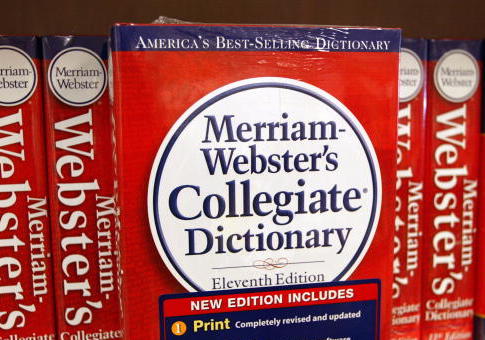Merriam-Webster's online dictionary quietly changed the meaning of the word "preference" and the term "sexual preference" on Tuesday after a Democratic senator claimed it was an "offensive and outdated term."
Under its online entry for the word "preference," Merriam-Webster now lists "sexual preference" as an "offensive" term. A usage paragraph was also published to explain: "The term preference as used to refer to sexual orientation is widely considered offensive in its implied suggestion that a person can choose who they are sexually or romantically attracted to."
As recently as last month, however, the dictionary included the term as an appropriate word for someone's sexual orientation.
As recently as last month, Webster’s Dictionary included a definition of 'preference" as 'orientation" or 'sexual preference." TODAY they changed it and added the word 'offensive."
Insane - I just checked through Wayback Machine and it’s real.
(via @ThorSvensonn & @chadfelixg) pic.twitter.com/oOq1SNtCP2
— Steve Krakauer (@SteveKrak) October 14, 2020
Merriam-Webster did not respond to a request for comment but provided further context on its policy for "offensive words" in an auto-reply message.
"Our job is to report on how language is actually used, not to prescribe how it ought to be used. We don't 'own' the English language," the message reads. "Some words are, unfortunately, offensive. Their inclusion in the dictionary is not an endorsement of their sentiments, just a reflection of the realities of language and the people that use it."
On Tuesday, Sen. Mazie Hirono (D., Hawaii) seized on Supreme Court nominee Amy Coney Barrett's use of the term "sexual preference" during a line of questioning about Barrett's comments on Obergefell v. Hodges, the Supreme Court case that granted same-sex couples the right to marry.
"'Sexual preference' is an offensive and outdated term. It is used by anti-LGBTQ activists to suggest that sexual orientation is a choice. It is not," Hirono said.
Despite Hirono's objections, leading liberal Democrats, Democratic presidential nominee Joe Biden, and the late Ruth Bader Ginsburg have also used the term in the past few years. In May, Biden told supporters that his campaign would "bring everybody along regardless of color, sexual preference, [or] their backgrounds."
